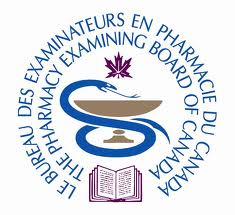Symptoms in the Pharmacy :Respiratory Problems (9)
Most people with a sore throat do not consult the doctor – only about
5% do so and many will consult their pharmacist. Most sore throats
that present in the pharmacy will be caused by viral infection (90%),
with only one in ten being due to bacterial infection, so that treatment
with antibiotics is unnecessary in most cases. Clinically it is almost
impossible to differentiate between the two. The majority of infections
are self-limiting. Sore throats are often associated with other symptoms of a cold.
Once the pharmacist has excluded more serious conditions, an
appropriate OTC medicine can be recommended.
What you need to know
- Age (approximate)
- Baby, child, adult
- Duration
- Severity
- Associated symptoms
- Cold, congested nose, cough
- Difficulty in swallowing
- Hoarseness
- Fever
- Previous history
- Smoking habit
- Present medication
Significance of questions and answers
Age
Establishing who the patient is will influence the choice of treatment
and whether referral is necessary. Streptococcal (bacterial) throat
infections are more likely in children of school age.
Establishing who the patient is will influence the choice of treatment
and whether referral is necessary. Streptococcal (bacterial) throat
infections are more likely in children of school age.
Duration
Most sore throats are self-limiting and will be better within 7–10 days.
If it has been present for longer, then the patient should be referred to
the doctor for further advice.
Severity
If the sore throat is described as being extremely painful, especially in
the absence of cold, cough and catarrhal symptoms, then referral
should be recommended when there is no improvement within
24–48 h.
Associated symptoms
Cold, catarrh and cough may be associated with a sore throat. There
may also be a fever and general aches and pains. These are in keeping
with a minor self-limiting viral infection.
Hoarseness of longer than 3 weeks’ duration and difficulty in
swallowing (dysphagia) are both indications for referral.
Previous history
Recurrent bouts of infection (tonsillitis) would mean that referral is
best.
Smoking habit
Smoking will exacerbate a sore throat and if the patient smokes it can
be a good time to offer advice and information about quitting. Surveys
indicate that two-thirds of people who smoke want to stop.
be a good time to offer advice and information about quitting. Surveys
indicate that two-thirds of people who smoke want to stop.
Present medication
The pharmacist should establish whether any medication has been
tried already to treat the symptoms. If one or more medicines have
been tried without improvement, then referral to the doctor should
be considered.
Current prescriptions are important and the pharmacist should
question the patient carefully about them. Steroid inhalers (e.g. beclometasone
(beclomethasone) or budesonide) can cause hoarseness and
candidal infections of the throat and mouth. Generally they tend to do
this at high doses. Such infections can be prevented by rinsing the
mouth with water after using the inhaler. It is also worthwhile
checking the patient’s inhaler technique.
Poor technique with metered-dose inhalers can lead to large amounts of the inhaled drug
being deposited at the back of the throat. If you suspect this is the
problem, discuss with the doctor whether a device that will help
coordination or perhaps a different inhaler might be needed.
Any patient taking carbimazole and presenting with a sore throat
should be referred immediately. A rare side-effect of carbimazole is
agranulocytosis (suppression of white cell production in the bone
marrow). The same principle applies to any drug that can cause
agranulocytosis. A sore throat in such patients can be the first sign of a
life-threatening infection.
being deposited at the back of the throat. If you suspect this is the
problem, discuss with the doctor whether a device that will help
coordination or perhaps a different inhaler might be needed.
Any patient taking carbimazole and presenting with a sore throat
should be referred immediately. A rare side-effect of carbimazole is
agranulocytosis (suppression of white cell production in the bone
marrow). The same principle applies to any drug that can cause
agranulocytosis. A sore throat in such patients can be the first sign of a
life-threatening infection.



Comments